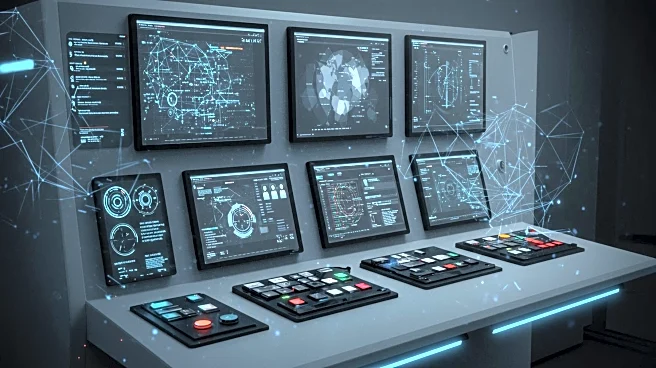What's Happening?
The automation industry is experiencing a shift towards integrating IT best practices into operational technology (OT) due to a shortage of skilled workers and volatile supply chains. This trend is leading to the adoption of generative AI and low-code solutions in industrial controller programming. The introduction of Industrial Copilot for Engineering is helping bridge the skills gap by providing intelligent code assistance and preserving knowledge as experienced programmers retire. Additionally, standardized data models like OPC-UA and MQTT are being adopted to ensure compatibility and interoperability across systems, simplifying control structures and enhancing IIoT functionality.
Why It's Important?
The integration of AI and low-code solutions in industrial controller programming is crucial for addressing the skills gap in the automation industry. As experienced programmers retire, these technologies offer a way to maintain and update legacy systems efficiently. The adoption of standardized data models ensures seamless data processing and analysis, which is vital for the functionality of IIoT systems. This shift not only enhances performance but also supports ongoing development and innovation in the industry, potentially leading to more efficient and adaptable automation solutions.
What's Next?
The industry may see a phased migration to newer controllers, integrating modern engineering tools for improved performance and support. Companies might focus on documenting insights from experienced staff before they leave, organizing knowledge transfer sessions, and maintaining updated training materials for new engineers. This approach could help mitigate risks associated with the loss of system knowledge and ensure continuity in system maintenance and development.









